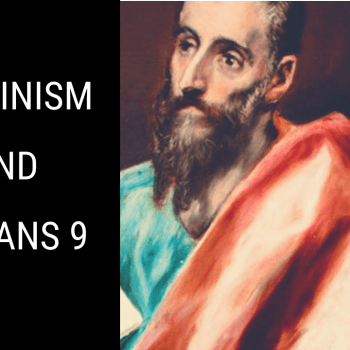I was asked by a reader to discuss the issue of equal ultimacy.
Equal ultimacy is the idea that God predestines men to wrath in the same way that he predestines men to life. There is an exact parallel between election to salvation and reprobation. This position in Calvinist theology is labelled “supralapsarianism.” God decrees both salvation and reprobation, and then decrees the fall as the means of bringing this about.
This is distinguished from the “infralapsarianism” in which election and reprobation are described as two separate acts. Election is God’s active choice of certain fallen men unto salvation; reprobation is God’s passive allowance of the non-elect to remain in their fallen state. In other words, God chooses some for salvation out of the sinful lump of humanity while leaving the rest in their sin.
These two positions are sometimes placed under a logical order (as opposed to a temporal order, since God transcends time) of God’s decrees.
The supralapsarian “order of decrees” are as follows:
1. God decrees to glorify Himself in election and reprobation
2. God decrees the fall as a means of bringing about election and reprobation
3. God decrees the death of Christ for the elect
And the infralapsarian view:
1. God decrees the fall
2. In view of the fall, God decrees the salvation of some, while allowing the rest to remain in their sin.
3. God decrees the death of Christ for the elect
This is an important distinction to make, because Lutherans too often characterize all Calvinists as being guilty of equal ultimacy, while infralapsarianism is the predominant view. Infralapsarianism is less problematic as it avoids making God the author of sin. However, both positions are inadequate for a couple of reasons.
First, both positions are based on a theology of glory wherein one is concerned with the eternal decrees of God, rather than God’s revelation in Christ–God hidden rather than God revealed–God in Himself rather than God preached. While this may be an interesting intellectual exercise, it leads one far beyond the Biblical material on the issue. I highly doubt that Paul was contemplating the order of God’s decrees as he penned the epistle to the Ephesians.
Second, both of these positions place election as the central soteriological motif rather than the cross. The cross becomes merely the means of bringing about predestination–hence limited atonement. In Lutheran (and Pauline) theology, election is God’s choice to bring us to the cross. This is why election is always “in Christ.” The cross is at the center, and whatever other soteriological benefits are given are in view of this.











